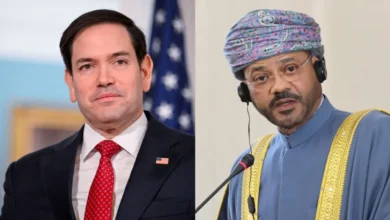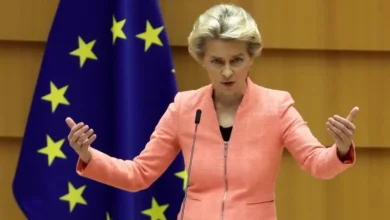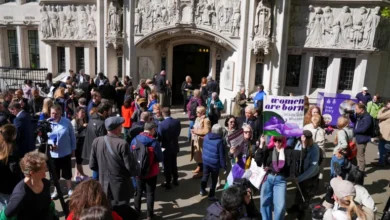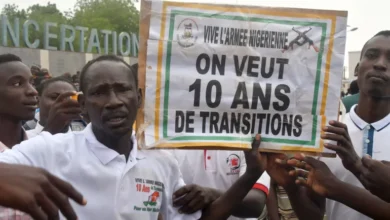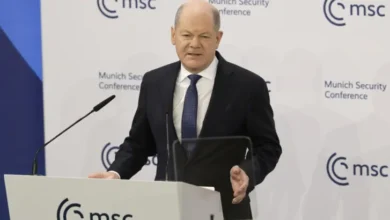It is time for a new Africa beyond borders and boundaries
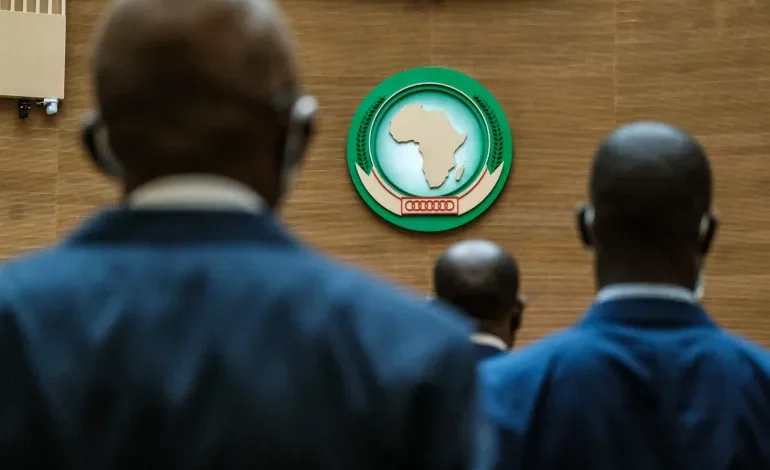
African leaders will be convening in Ethiopia’s capital, Addis Ababa, for the 37th summit of the African Union on Saturday. During the two-day gathering, the Heads of State and Government of the African Union will discuss issues of peace, development and integration against the backdrop of resurgent coups, global food and commodity crises and heightened geopolitical competition across the continent.
The integration agenda holds particular significance as global powers vie for influence over African states, evident in the growing number of “Africa summits” hosted by individual countries outside the continent in recent years.
Africa faces several complex and multifaceted challenges, yet the urgent priority today must be continental integration which would remove barriers to labour and capital mobility. To this end, I urge the leaders gathered in Addis Ababa to rise above customary speechmaking and confront this challenge head-on. They can draw inspiration from the unwavering resolve of AU founders who united to alleviate the adverse effects of colonialism.
Therefore, the summit must take concrete and practical steps to accelerate the implementation of the African Continental Free Trade Area (AfCFTA), a trade regime that aims to establish a tariff-free market for goods and services. In addition, the summit should lay the groundwork for the creation of a “Made in Africa” economic corridor that would augment the continental efforts towards a pan-African marketplace.
I have witnessed such promises made in the past. In May 2022, during the Extraordinary AU Summit in Malabo, Equatorial Guinea, I was part of the Ethiopian delegation led by Prime Minister Abiy Ahmed. That trip took us to Kenya, Nigeria and Equatorial Guinea. As minister of minerals and energy, I attended ministerial meetings and AU sessions that seemed routine, rather than practical steps to address real challenges. As we flew across the continent and during the summit, a single question kept percolating in my head: Why can’t Africa and its leaders join hands and realise the prosperity that our people so richly deserve? Are there, perhaps, some invisible chains holding us back? If so, what are they?
Then, I remembered the fable of the elephant rope: the story of a young man who, while travelling through the forest, stumbles across a camp of elephants; he finds the mighty elephants tied to a small tree with thin pieces of rope and unable to roam freely. The elephants, the man later learns, had been held in place by the same chain since childhood, conditioned as they were, believing they could never break free. It is an apt metaphor for the structural impediments and systems of thought that still hinder the age-old dream of integrated Africa.
The truth is our continent is filled with big elephants now: a young and rapidly growing population; proliferating technological and economic innovations; vast reserves of human and material resources that are yet to be fully explored and utilised; and a growing consumer base for global goods and commodities. However, it seems Africa is still being held back by a tiny rope: post-colonial artificial borders and a governance model that keeps it in shackles. The convergence of colonial borders and leadership failures continues to push African countries into internal conflicts, civil wars, border disputes, and fragile political, economic, and institutional predicaments.
Kenyan-American scholar Makau W Mutua has argued for a return to the pre-colonial map – to a world before European colonisers divided our overlapping communities. But, this, of course, poses more questions than it answers: who would initiate or even be trusted to embark on such a controversial project? Are colonial borders truly the root causes of African conflicts and barriers to its integration?
Across Africa, the boundaries of ethnic and cultural groups are often fluid and porous. It would be challenging indeed to determine where one group’s territory ends and another’s begins. Additionally, redrawing the map of Africa would likely lead only to more conflicts. It might increase economic disparities and language barriers. Importantly, doing away with post-colonial borders would not promote the goal of a united and prosperous Africa. We must think differently.
Let us take a step back a few decades. At the inaugural summit of the Organization of African Unity, the forerunner of AU, in 1963, the founding fathers laid down a resounding vision for continental integration, unity and solidarity. They stressed the critical need for Africans to unite in order to overcome their shared difficulties and shape the continent’s future. There was a strong sense of optimism, resolve and dedication to cooperating for the advancement and welfare of African people. The leaders articulated a shared vision of a united Africa, free from conflict, division, and underdevelopment. They set up African states to assume their rightful place as influential, independent nations.

